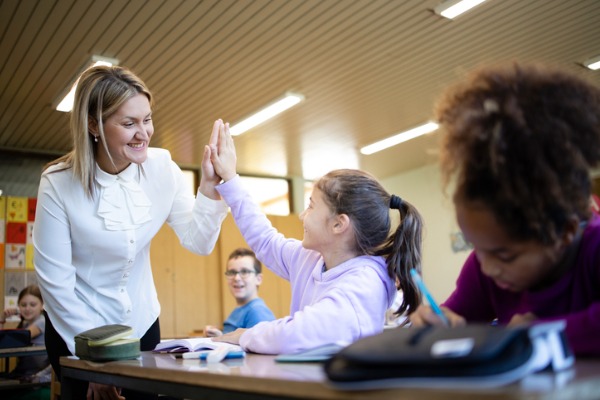In the age of AI, what skills will distinguish humans in work and life as machines take over more tasks? Luke Ramsden explains why empathy is crucial for success and tips for modelling in the classroom.

With the dawn of a new era in Artificial Intelligence, it is more critical than ever for schools to focus on developing those aspects of learning that AI may not replace anytime soon. Among these areas, empathy and creativity are arguably the most important.
Empathy is often termed a ‘soft’ skill, but this is a negative and patronising description. The ability to empathise with others is not just morally desirable but also the foundation for a happy life and successful career. Someone empathetic is likely to find it easier to develop positive relationships with other people.
Employers are always looking for people not just with the technical proficiency to do their jobs but also who have skills arising from their empathy with others, such as the ability to communicate effectively and work successfully as part of a team.
So, what is this to do with schools? Surely people are either empathetic or not? Well, like creativity, there are a lot of things that schools can do to help develop their students’ empathy.
Many teachers naturally act as excellent models of empathy, and indeed those who went into a teaching career are likely to be empathetic individuals by nature. It can be useful to periodically remind teachers of the fact that they are acting as models in this way. Key elements of this include the following.
On a practical level, and something tutors often must model, teachers often can model conflict resolution between students and help them to understand their different perspectives. This could, and should, be a part of a school’s behaviour policy as asking students to reflect upon episodes where they have things go wrong can help them to think about what they have learnt about how to show empathy and why it is so important.
There are a lot of things that schools can do to help develop their students’ empathy
Schools should also look to create opportunities for students to empathise which each other or with other people in wider society to imagine what they are thinking and feeling. This is something that could fit very well into PSHE lessons looking into discrimination and inclusion. Addressing issues such as racism or sexism is done much more effectively when seeking to understand the thoughts and opinions of those concerned.
Within the school community, older students can be allowed to express both empathy and leadership by being mentors to younger students. This can be a great positive for the whole school community.
Younger students get the opportunity to learn from seniors who can often act as role models and voices of school experience in a way that teachers are not able to. Older students in turn get the chance to put themselves into younger students’ shoes and think about how their own experiences and difficulties when that age can help them.
Particularly in the humanities, there are almost endless opportunities to draw out and use empathy with students. History, geography and RE are all about understanding different people and cultures in various times and places.
Similarly reading fiction and creative writing are intrinsically empathetic exercises. Creative arts like music, art, and design are all about creating a connection with other people. Design technology can use the principles of ‘design thinking’ which says that anyone designing something must seek to empathise with their future users so that they can create something that they would like.
Again, the key here for teachers can be to ensure that, from time to time, they pause to reflect on what students have learnt in these studies not just in terms of curriculum content but in their understanding of other people.
Probably every school in the country has a prospectus which proclaims that it is ‘not an exam factory’ and that it seeks to ‘educate rounded people for life beyond school.’ For this to be a reality all these schools must be ensuring that they are not just teaching curriculum content to their students but also how to be empathetic human beings!
The Excellence in Pupil Development Award offers a structured framework to evaluate and enrich your pastoral curriculum It supports you in developing pupil’s personal attributes and attitudes, such as self-confidence, resilience and self-discipline.